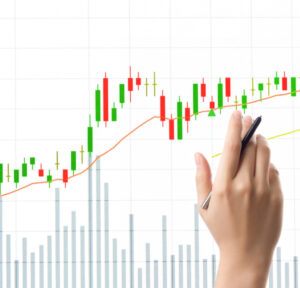Dollar vs Rand – all you need to know

A currency’s exchange rate is the price at which it will be exchanged for another currency. The majority of exchange rates are considered to be “floating,” meaning that they can alter according to market supply and demand. This article will consider the Dollar (USD) vs Rand (ZAR) currency pair.
Dollar vs Rand today forecast: Will the Dollar lead?
The South African Rand is anticipated to trade at 17.69 by the end of this quarter, Q4 2022, according to Trading Economics global macro models and prediction. In the nearest future (365 days), analysts anticipate the Rand to trade at 19.08. This shows a further depreciation in the Rand against the dollar.
What’s the exchange rate for 1 Rand (ZAR) to the Dollar?
As of the time of writing, 1 South African Rand is equal to 0.059 United States dollars.
How to convert Rand (ZAR) to USD
The process of converting ZAR to USD is relatively straightforward. The conversion can be done manually or with a currency calculator.
Currency Calculator
The most straightforward method to obtain an approximation when converting currencies is frequently using a currency conversion calculator. A calculator can help you verify your math is accurate because exchange rates vary frequently.
Remember that additional costs associated with currency exchange are frequently unpredictable and cannot be predicted by a conversion calculator. For instance, 1% conversion fees are typically applied to all international transactions by credit card providers and ATM networks.
Calculate it Manually
A manual calculation using a straightforward mathematical method is the alternative. The current exchange rate must first be known to perform the conversion. R 1 is currently worth $0.059 USD at the time of writing.
Once you have that knowledge, multiply the amount of ZAR that you have by the current exchange rate, and you’ll get how much USD you will be expecting as credit or debit.
Why is the ZAR USD relationship so volatile?
The ZAR USD volatility, like normal fluctuations in exchange rates, can be caused by several factors. These are two of the most common causes we see mostly.
Inflation
One of the most frequent reasons for volatility in exchange rates in any given nation is inflation. Production is directly affected by shortages of resources like energy, labour, or raw materials, which often results in higher customer pricing. This is referred to as Cost-pull inflation.
Demand-pull inflation also affects the fluctuations of the ZAR USD exchange rates. Demand-pull inflation is when businesses charge more for their products because of increased customer demand and purchase rates. Changes in the housing market, governmental policies and taxation, as well as several other factors, also contribute to inflation which in turn contributes to the volatility of the ZAR USD pair.
Political and economic conditions
A challenging global environment, such as the Russia-Ukraine war and its repercussions, has significantly impacted the economic activities of South Africa and by extension, the volatility of the Rand against the U.S. dollars and other currencies.
The Potential implications of a further strengthening of the Dollar vs Rand today.
Supply and demand
In addition to lowering the upfront expenses of importing and exporting, a better dollar-to-rand exchange rate will benefit South African businesses by increasing their opportunities. Long-standing international business ties may benefit from and even be strengthened by the effects on purchasing and selling.
If there’s consistency in the dollar vs Rand exchange rate, businesses may approach South Africa to increase their operations and investments when the risk is seen as reasonable or stable for trading within the nation. This also implies that more opportunities and jobs will be developed in these places.
When business owners are more eager to collaborate with South African companies, it may result in the nation’s having a positive trade balance, where their exports outnumber their imports. This is also referred to as a trade surplus, and it can result in economically stable nations and communities.
Take your earned knowledge to practice. Sign up to use a free demo account>>
Investments
An improved dollar-Rand exchange rate might also have a long-term effect on things like investments. Stronger currencies mean that many people’s liquid assets, such as pensions and long-term savings accounts, will suddenly be worth something on the international stage.
A rise in the exchange rate will make investors’ investment funds larger and more flexible if they save to invest in foreign real estate or businesses. The requirements for a down payment on a home or a minimum investment in a firm become more feasible.
Due to the favourable currency rate for South Africans, there is also a chance that competition from international investors will be less intense. Even if the USD may be worth more, the Rand won’t be far behind, making it simpler for domestic investors to compete with overseas investors. As a result, there may be more chances for local investors to invest within their own nation.

This information is written by Klips. The information is provided for general purposes only and does not consider any personal circumstances or objectives. Before acting on this material, you should consider whether it is suitable for your circumstances and, if necessary, seek professional advice. No representation or warranty is given as to the accuracy or completeness of this information. It does not constitute financial, investment or other advice on which you can rely. Any references to past performance, historical returns, future projections, and statistical forecasts are no guarantee of future returns or future performance. Klips will not be held responsible for any use that may be made of this information and for any consequences that may result from such use. Hence, any person relying on the information on this page does it at their own risk.
Learn more, understand the markets
Learn

Top AI Companies to Watch: A Deeper Dive
ByAndreea
 3 min.
3 min.Learn

Charting Your Course to Trading Success with Klips
ByAndreea
 3 min.
3 min.Learn

Navigating the ECB’s Monetary Policy with Klips: Empowering Your Trading Strategy
ByAndreea
 3 min.
3 min.Learn

Harness the Power of Dollar-Cost Averaging on Klips Trading Platform Amidst a Bear Market
ByAndreea
 3 min.
3 min.Learn

Blockchain: The Future of Finance?
ByAndreea
 5 min.
5 min.Learn

AMC stock price – What Influences it the most
ByAdmin
 5 min.
5 min.Learn

What are trading signals?
ByAdmin

Trading

3 popular candlestick patterns for forex trading strategy
ByAdmin
 4 min.
4 min.Trading

Learn how simple forex trading is in South Africa
ByAdmin
 5 min.
5 min.Trading

The Warren Buffet of India: Find Out How Rakesh Jhunjhunwala Built His Fortune
ByAdmin
 7 min.
7 min.


